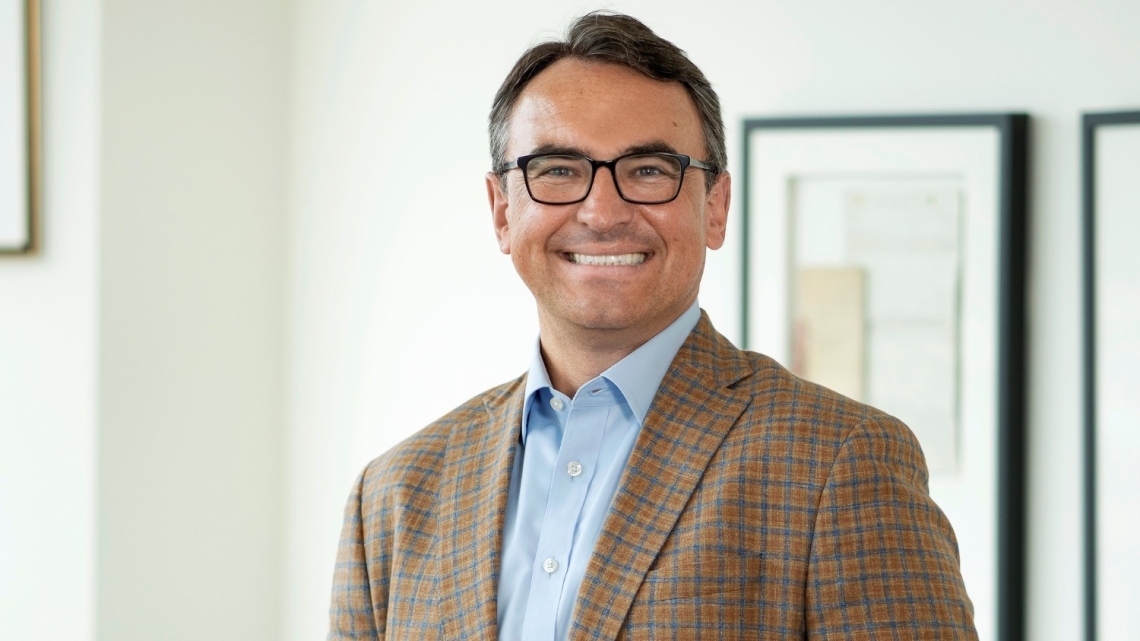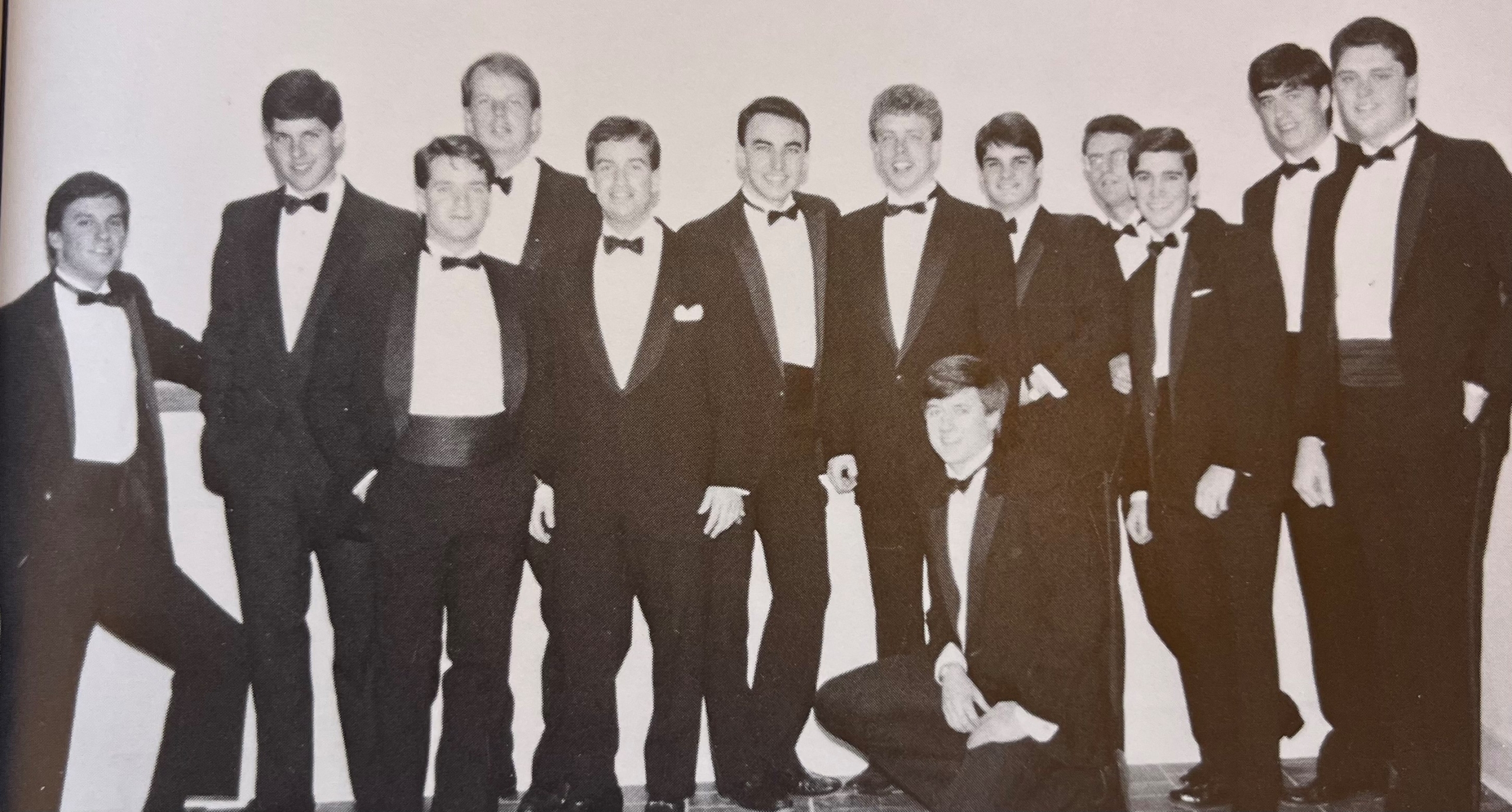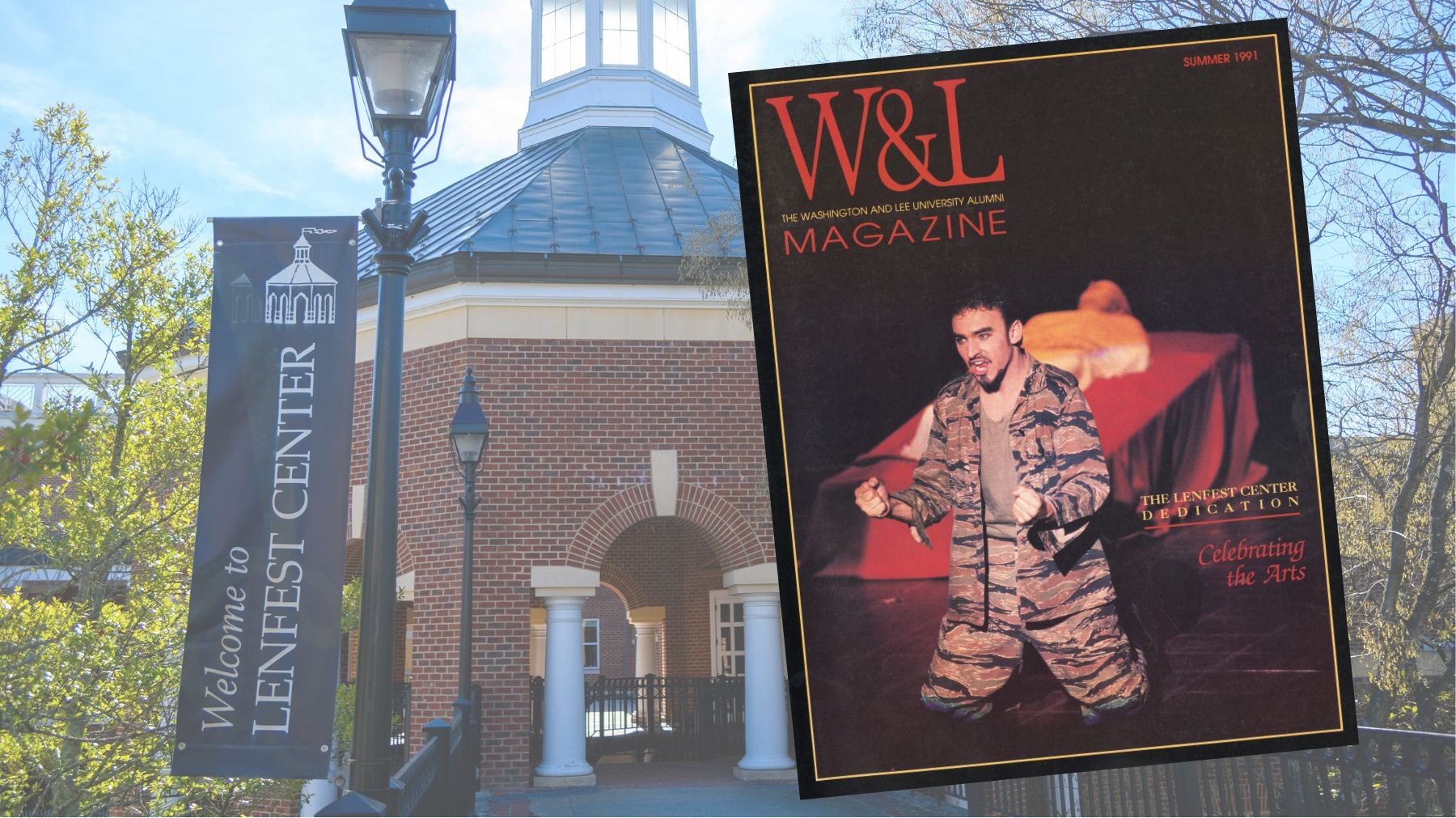News & Events

“I know I would not have had the richness in my life and the opportunities without Washington and Lee. So, it only made sense that I paid that back.” - Robby Aliff ’91, ’97L
In the fall of 1986, Robby Aliff slid behind the wheel of Elizabeth Lewis’ Cadillac and, under the unassuming, elderly woman’s direction, began the two-and-a-half-hour drive from Oak Hill, West Virginia, to Lexington – specifically, to the campus of Washington and Lee University. Lewis instructed Aliff to pull directly into the driveway of Lee House, and there they were greeted by then-President John Wilson.
Elizabeth Lewis’ late husband, John Edward Lewis ’29, cherished his time at W&L. Following his passing in 1971, Elizabeth continued his legacy by providing scholarships to select students from West Virginia — through the J. Edward Lewis Scholarship Fund — to attend her husband’s alma mater.
Aliff immediately fell in love with the campus following his tour with President Wilson and knew Washington and Lee was where he wanted to spend the next four years. Unbeknownst to him, that September day would change the trajectory of his life, as Lewis had chosen him as the recipient of her husband’s scholarship. Aliff remembers the excitement he felt after receiving his acceptance letter later that year.
“When I think about the impact of that moment — to be admitted — and Mrs. Lewis, through her generosity, making it possible … that changed everything for me,” Aliff said.
Despite his modest roots — his father worked as a coal miner, and his mother was a secretary in a mine machinery company — Aliff’s parents were very supportive of their youngest child’s endeavors, especially educational. From an early age, Aliff was a self-described “overachiever,” assuming leadership roles in student government, his church and in the arts. His natural inclination for participation and leadership continued throughout his time at W&L.
Shortly into his first year as an undergraduate, Aliff joined Lambda Chi Alpha fraternity and became involved with the Music Department through the a cappella group, Southern Comfort. There was an initial steep learning curve as a first-generation college student, but with help and guidance from his friends and mentors, Aliff did not let that hurdle deter him from having the full W&L experience.

“I met [then-head of the Music Department] Gordon Spice my very first evening in Lexington,” Aliff recalled. “He became a father figure to me during my undergraduate experience.”
Aliff served as a dorm counselor under the supervision of another mentor, Ken Ruscio ’76, who was dean of freshmen at the time. He immersed himself in experiencing everything that Washington and Lee had to offer — experiences that he never forgot were made possible by the Lewis Scholarship.
Aliff decided to take a break from school following graduation and worked as a W&L admissions counselor for the next three years, living in Lexington and enjoying becoming a “townie.” He always knew he wanted to be a lawyer, and this time out of school allowed him to start earning the much-needed money to apply to his first school of choice, W&L Law. Due to financial realities, he initially made plans to attend West Virginia University (WVU) College of Law; however, after living in Virginia for three years as a non-student, Aliff would be required to pay out-of-state tuition at WVU.
“I made the decision I was just going to bite the bullet and take out the loans necessary to attend W&L Law,” Aliff said.
But fate — in the form of Elizabeth Lewis — interjected once again.
“I got the call from John DeCourcy, [former] director of student financial aid, that Mrs. Lewis wanted to pay for my law school tuition,” Aliff said. “So, I finished law school with no debt. It was unfathomable to me, and I am forever grateful.”
During his time at W&L Law, Aliff continued his involvement, both as a student in Lewis Hall and as an unofficial local tour guide for his fellow law classmates. He enjoyed bridging the literal and figurative “Woods Creek divide” between the university and Law School, encouraging law students to get to know their new community.
“I tried as best I could during my time there to meld those two worlds,” Aliff said.
Law professor Roger Groot helped cement Aliff’s passion for community-mindedness as a young lawyer in training. As a second- and third-year student, he traveled with Groot’s prison practicum clinic to Alderson Federal Prison Camp in West Virginia to provide pro bono legal services to inmates. He remembered overhearing a piece of advice his professor gave to a fellow law student.
“Groot told him, ‘You have a special power as a lawyer — when you get back to your community — to make more of a difference than other people are able to make.’”
This advice made a lasting impression on Aliff as he returned to his home state to practice law at Jackson Kelly, where he has spent the past 28 years. Guided by mentors at the firm, Aliff jumped head-first into community service. Among many roles, he has served on the United Way of Central West Virginia Board of Directors and is currently chair of the Clay Center for the Arts and Sciences Board of Directors. In 2026, Aliff will take the reigns as president of the West Virginia State Bar. This progression of leadership roles is inherent, but Aliff also feels a responsibility to give back.
“I feel an obligation as a lawyer and as a first-generation college student who had an opportunity to pay Mrs. Lewis back for everything she did for me,” Aliff said.
At W&L, Aliff has served on the Law Council and the Alumni Board; he has co-chaired the W&L Law Fund and served on several reunion committees. One of his greatest honors was helping establish the Gordon P. Spice Endowment for Music to honor his former professor’s retirement in 2012.
Not only is he compelled to pay it forward in his community, Aliff feels strongly about giving back to Washington and Lee what he has been given — literally. Over the years, Aliff was able to find out exactly how much Lewis invested in his undergraduate and law school educations. And with his annual giving donation in 2025, Aliff has repaid that substantial commitment in-full.
“I know I would not have had the richness in my life and the opportunities without Washington Lee,” Aliff said. “So, it only made sense that I paid that back.”
It might be easy to look back on all he has accomplished since that fateful fall day in 1986, but Aliff is more about looking to the possibilities of the future. “It’s about being mindful of the future in a way that it's not all about me,” Aliff said. “As a matter of fact, it's not about me at all. It's about the impact that I might be able to have to make this place a little better than it was when I got here.”
____________________________________________________________________
Q&A with Robby Aliff ’91, ’97L
What is one moment from your time at W&L that still makes you smile?
“I have a distinct memory of sitting on the roof at Lambda Chi Alpha house on Nelson Street and having a feeling that I belonged. I had found my place at Lambda Chi; I had found my place at Washington and Lee; I had found my place in Lexington. There was a feeling of peace that makes me smile when I remember that.”
What sets W&L apart?
“The Lenfest Center opened in the spring of my senior year. We did a production of ‘Evita’ — I was Che Guevara — and Mr. and Mrs. (Marguerite and Gerry) Lenfest were there. One of my prized possessions from my time at Washington and Lee is me on the cover of the alumni magazine from that year as Che Guevara. Talk about a capstone experience: For a psychology major to be able to do one of the lead roles in the first production in a brand-new performance center, that really speaks to the power of a liberal arts education. I think something that sets W&L apart is the opportunity to have all of these different experiences.”

If you reunited with Southern Comfort for one night, and you had to pick one song to perform, what would it be?
“It would be ‘Happy Together’ [by the Turtles]. We did choreography to that song where we pretended to be monkeys, and we were just over the top. It was a crowd favorite, and it was the most fun you can have while singing. And somehow, we got away with doing that while wearing tuxes. That would be a delightful thing to go back and do one more time with all my friends.”
What's a meaningful place that you've traveled to and why?
“Last year, my wife and I went to Bhutan, a tiny country between China and India. It’s still very much an untouched, culturally pure place. It hasn't turned touristy quite yet, and the people are remarkable. It was a great opportunity for my wife, Tracy, and me to experience a completely different culture, yet we could recognize all of the similarities with our own. We could connect with people in a human way that makes the world seem a lot smaller.”
What is a piece of advice you would give students about making the most of their time on campus?
“My advice is to train yourself in the beginning for your default answer to be ‘yes’ when someone asks you to do something, whether it be an organization or going to the movies with new friends or attending a meeting or a concert. If you don't put yourself out there, you're going to leave something on the table that may have been a great opportunity. Take advantage of every single opportunity that Washington and Lee hands you, and the best way to do that is to let your default answer be ‘yes.’”